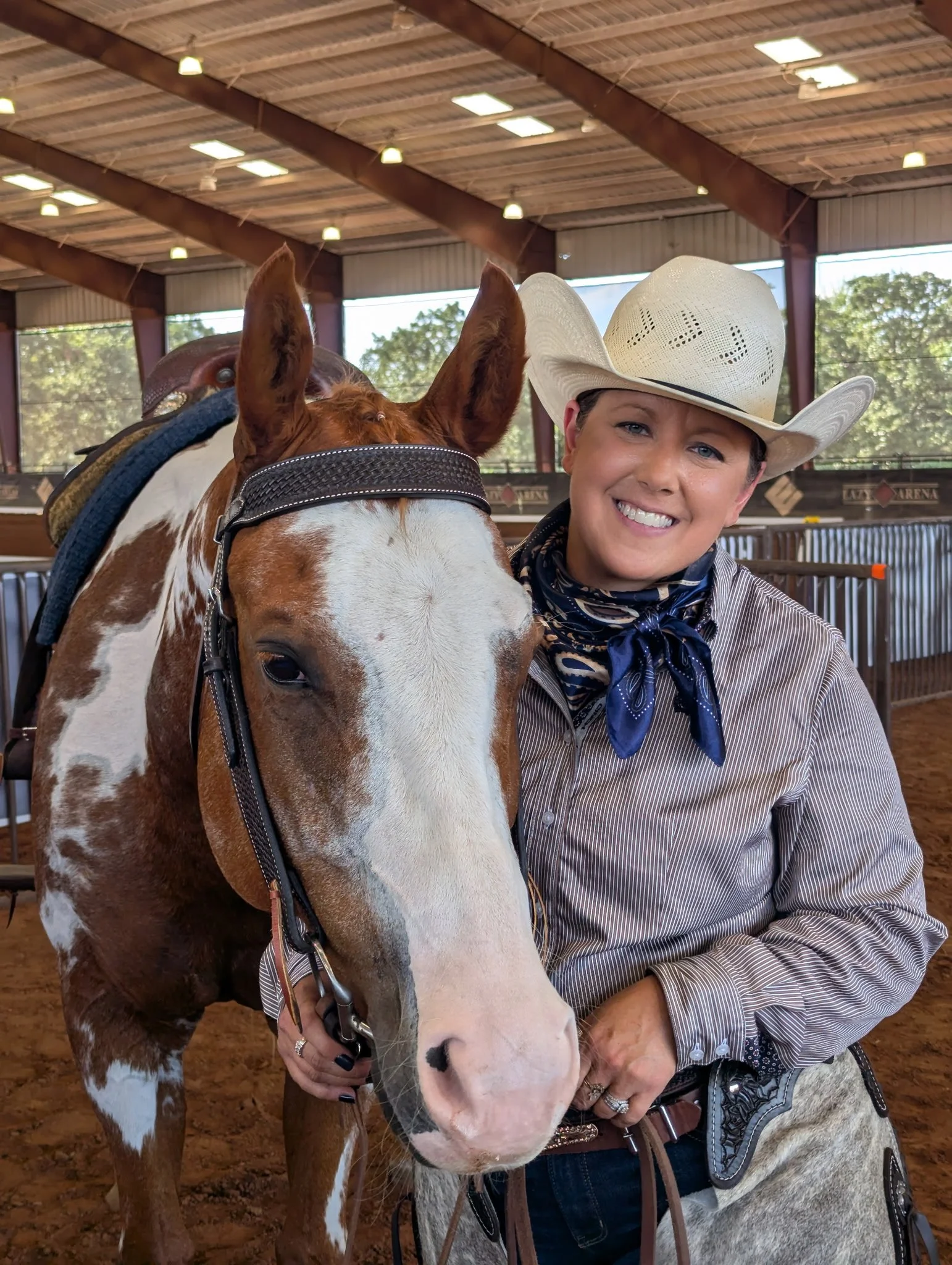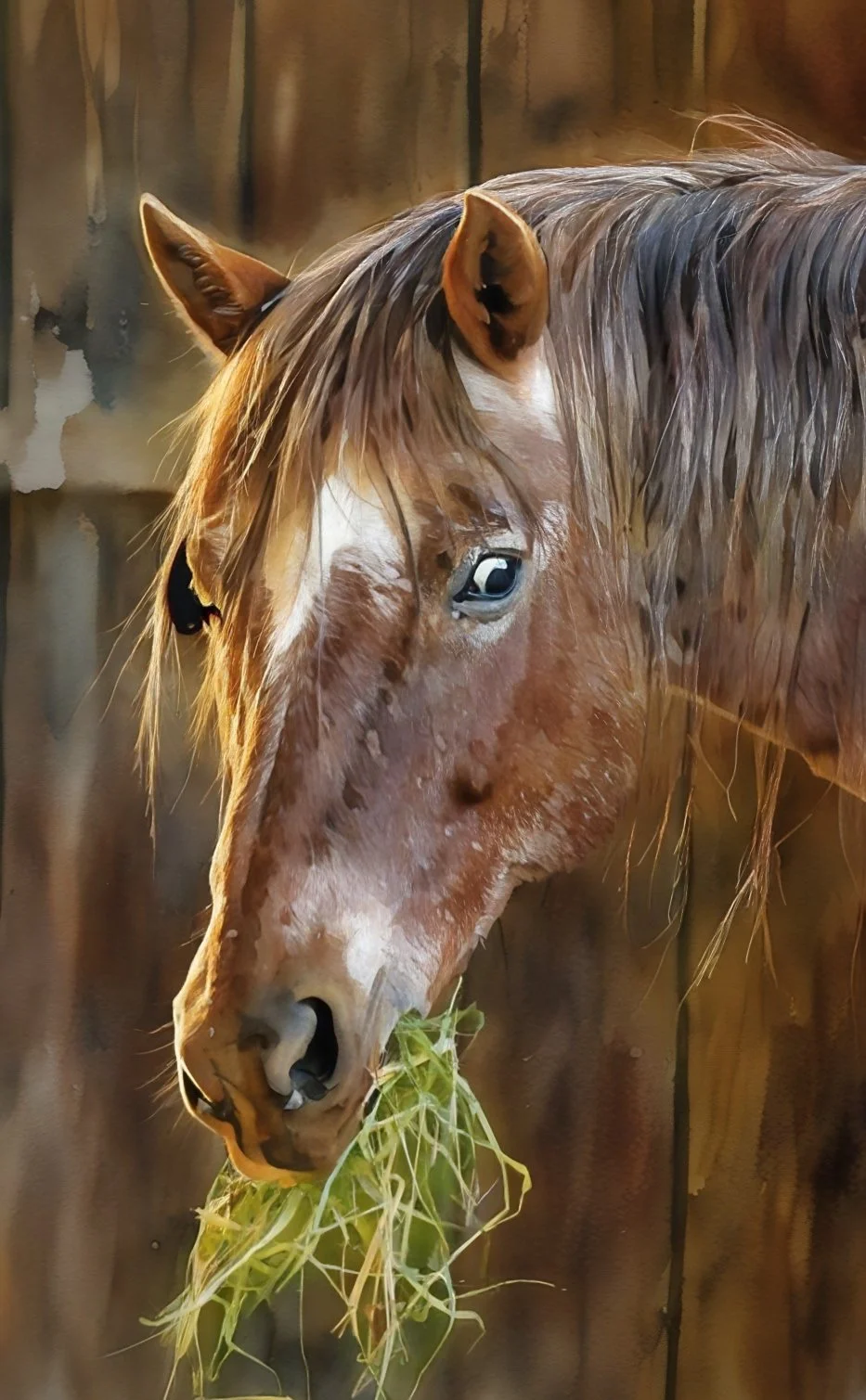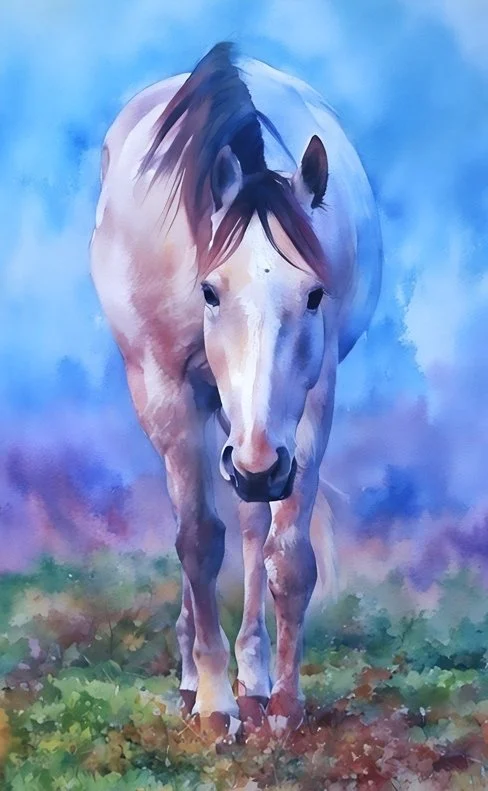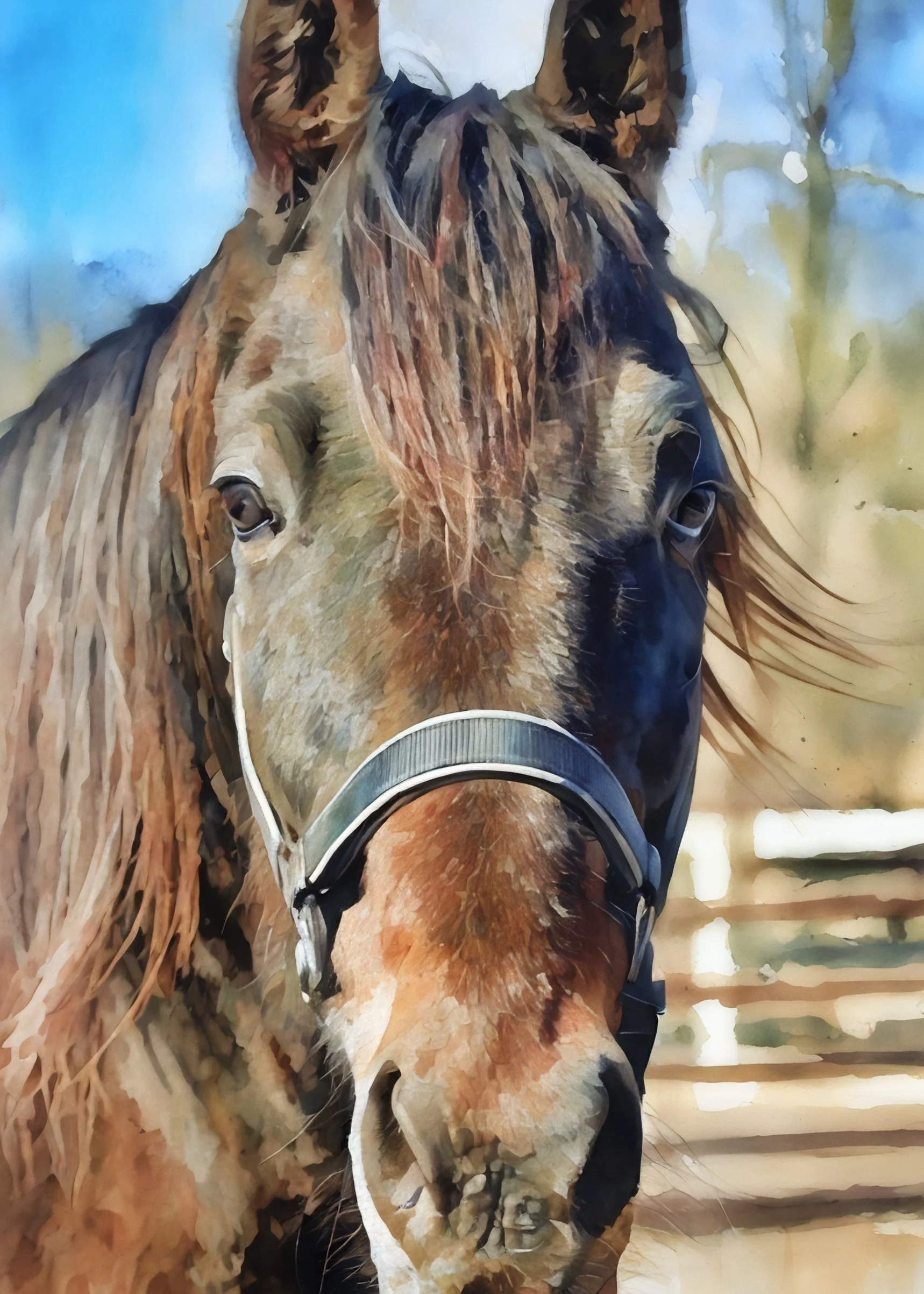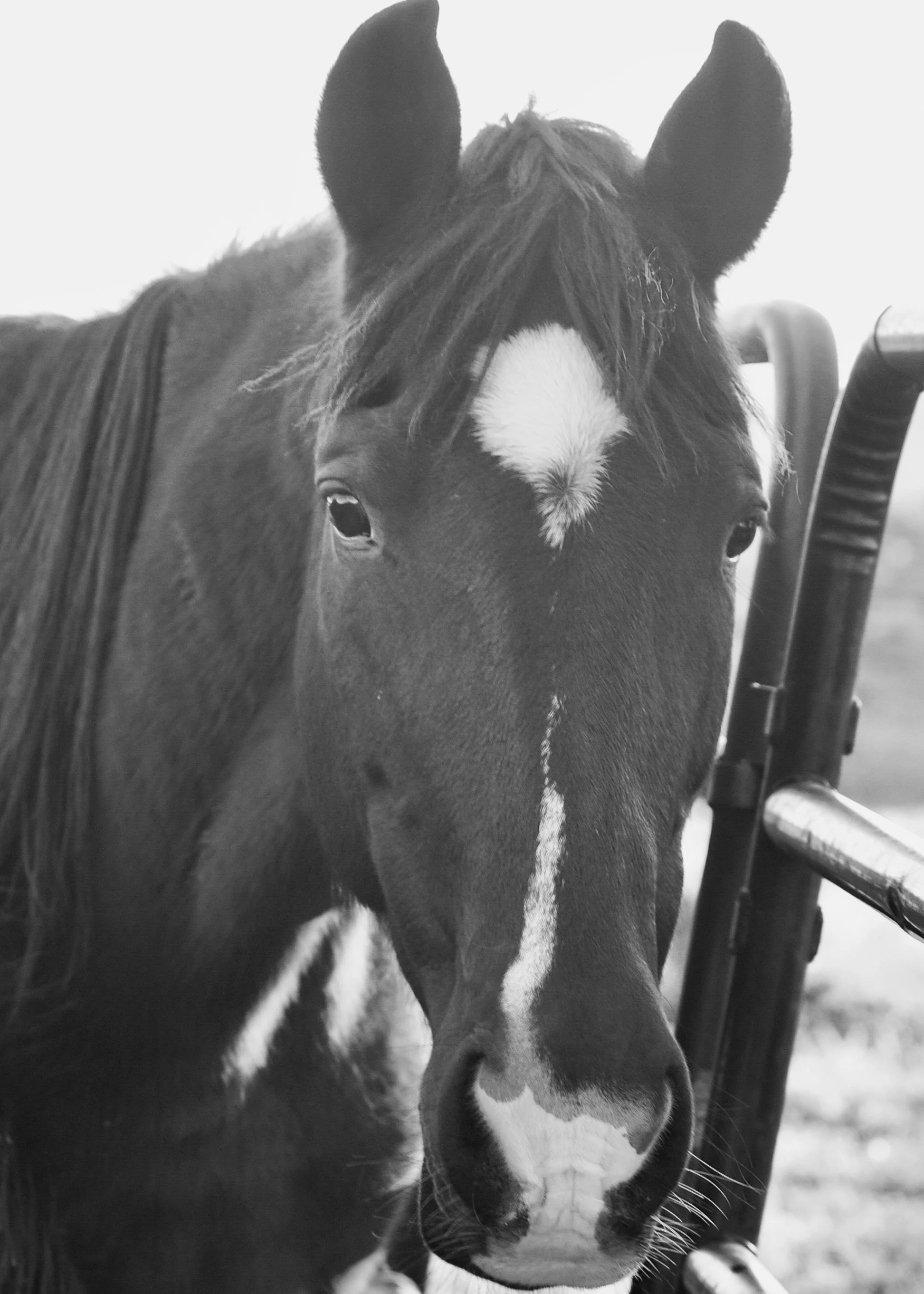
Founder and Program Director Kellie Kvern
For Kellie Kvern, the phrase “I’m going to the barn” has been the steady rhythm of her life. From childhood days galloping Breyer horses down staircases to photographing Thoroughbreds at some of the world’s most storied racetracks, her path has always led back to horses.
Her journey with horses started at YMCA day camp age 6; she’s had a foot in the arena ever since, no matter where in the world she’s living. At university in Beijing, she arranged programs in Inner and Outer Mongolia to work with breeders and racers of Mongolian horses. She trained at the Yorkshire Riding Centre in England, earning British Horse Society instructor credentials before moving to New York City, where she balanced work in photography with early mornings as an exercise rider at Belmont Park. As a photographer, Kellie’s work explores the profound connection between horses and humans. Her photography has appeared in Horse Illustrated, Young Rider, Hoof Beats Magazine, Afar Travel Magazine, and The Guardian.
In 2023, Kellie was diagnosed with stage IV metastatic inflammatory breast cancer—a rare and aggressive form of the disease that currently does not have a cure and requires continuous treatment. As part of a clinical trial at The Mayo, she travels there every three weeks for treatments. The barn is more than a favorite place now; it is a real sanctuary: a place of purpose, joy, and respite.
While navigating her own diagnosis, she realized how deeply she longed for a support group that felt alive, creative, and real. When she couldn’t find one, she built it. In partnership with This Old Horse, Kellie founded @Liberty—an equine-assisted program designed to help women affected by breast cancer rediscover freedom, resilience, and connection. Her approach blends liberty training, mindfulness, and humor—and creates a space where each woman feels seen and supported, and each rescue horse finds a new purpose and a little more light.
Coordinator Nickki Dombrock
Nickki Dombrock has spent much of her life in the company of horses, whether in the barn or in the saddle. Her equestrian journey spans a wide range of disciplines, including hunter under saddle, cow working, western pleasure, western dressage, and more, demonstrating both versatility and deep passion for horsemanship.
Nickki pursued her education at a local collage in the Twin Cities, studying landscape design and horticulture, along with accounting. This academic background led to a successful 16-year career in both retail and commercial banking. Despite the demands of her professional life, Nickki always remained closely connected to the equine world.
In 2019, Nickki faced a life-altering diagnosis: stage 4 colorectal cancer. She endured extensive treatment, including chemotherapy, radiation, and multiple surgeries. In 2022, she was again challenged with a diagnosis of small cell lung cancer, with masses found in both lungs. Through additional surgeries and unwavering determination, Nickki has achieved remission.
Today, Nickki channels her resilience and lifelong love of horses into volunteer work. She proudly serves as the Volunteer Coordinator for This Old Horse, a nonprofit equine sanctuary in New Richmond, Wisconsin. In this role, she helps others find purpose and connection through service, just as she has found strength and healing through horses.
Some Faces from the Herd
Boba Tea
Boba Tea is a spotted, slightly pudgy pony of mysterious heritage—part POA, part puzzle, possibly part gremlin. When I first met him, he was the angriest little horse I’d ever seen. Not fearful, not confused—just mad. He’d been “cowboy trained” to tolerate anything—tarps, traffic, hardware store rides—but what he’d really learned was how to shut down. Sold to an elderly man expecting an easy ride, Boba quickly stopped cooperating. When the crop and spurs came out, his refusals turned to bucks. His spirit was boiling over.
I’d handled him enough to know the truth: Boba Tea wasn’t bad. He was starving for connection. So I bought him. The first time I tried to lunge him, he nailed me in the thigh—not in fear, just sheer “leave me alone.” So we slowed everything down. One step, one pat and one breath at a time.
Months later, Boba trots happily under saddle. We’re not cantering yet—let’s not be ridiculous—but he meets me at the gate and follows me around the barn like a nosy little brother. His eyes no longer burn with anger; they hold curiosity, sometimes even calm. In the @Liberty program, Boba Tea teaches patience and repair, reminding us that anger is often just loneliness in armor—and that every tough little soul deserves someone willing to see past it.
Loki (registered name Avengeit)
Loki is a retired Thoroughbred who once raced at Canterbury Park in Minnesota. As a three-year-old, he showed promise, but not quite enough speed to capture the industry’s attention but enough heart to capture mine.
Now at sixteen, Loki continues to be a quiet teacher. Loki is curious, observant, and always keeps track of the world around him. He isn’t nervous or reactive, just calmly aware. People who meet him are struck by his gentle, grounded presence. Sweet, wise, and steady, he radiates a kind of peace that invites you to slow down and breathe.
Yet beneath that softness lies surprising courage. Loki is often the one who steps up to lead the trail ride, the one who puzzles out a new challenge without fuss. His intelligent eyes tell the story of a horse who has become both teacher and friend.
Loki models calm observation, quiet trust, and the strength of stillness. He shows us that true leadership doesn’t need to be loud—and that sometimes the most unassuming horses are the ones holding everything together.
Sharky (registered name Arthurian Legend)
Sharky is a 15-year-old Standardbred gelding, a former harness racehorse who once worked hard as a trotter. Over the course of 30 starts, he earned $11,249—not a fortune in racing, but enough to show his grit and willingness. Like so many horses once their racing careers end, Sharky’s future became uncertain. Without the safety net of a long-term plan, he eventually fell onto hard times.
By the time rescuers found him, Sharky was in a kill pen—starved, neglected, and with little hope for what might come next. Yet even in those dark days, there was still a spark in his eye, a quiet dignity that suggested he had more to give if only he was given the chance.
Thanks to advocates who intervened, Sharky was pulled to safety and eventually found his way to This Old Horse. With time, good feed, and patient care, he regained both his health and his spirit. Today, he has transformed into one of our most dependable teachers. Through our Soul Train program, Sharky patiently helps beginners learn how to approach, handle, and connect with horses. Gentle, forgiving, and wise, he embodies resilience and reminds us that second chances can change everything.


